Where did it all go wrong for Porsche's dream F1 deal?
It was supposed to be the deal of the century that would finally bring one of the great sporting names into Formula 1 under its own badge. But after weeks of speculation, boardroom intrigue and delays, the agreement between Porsche and Red Bull stalled just as the finish line was in sight. As the dust settles on the partnership that never was, Mark Hughes asks...

On the Tuesday before the Dutch Grand Prix, Christian Horner gave a speech to the staff of the Red Bull factory in Milton Keynes. Half the team was not being sold to Porsche, despite the widely-reported commercial papers Porsche had lodged to that effect. Red Bull would remain an independent team, Horner emphasised. Porsche had only been offered a deal with Red Bull Powertrains (the engine manufacturing company set up by Red Bull, which recently made the fire-up of its first prototype) which would have placed the German manufacturer’s name on the Red Bull power unit, together with the input of around 20 Porsche engineers. But that was all there was.
Porsche’s earlier talks with Red Bull’s soft drink magnate, 78-year-old Dietrich Mateschitz, had been based around Porsche buying 50% of the whole team (which is currently 49% owned by Mateschitz and 51% by the Thai Yoovidhya family). But any previous discussions had just been preliminary, Horner emphasised.
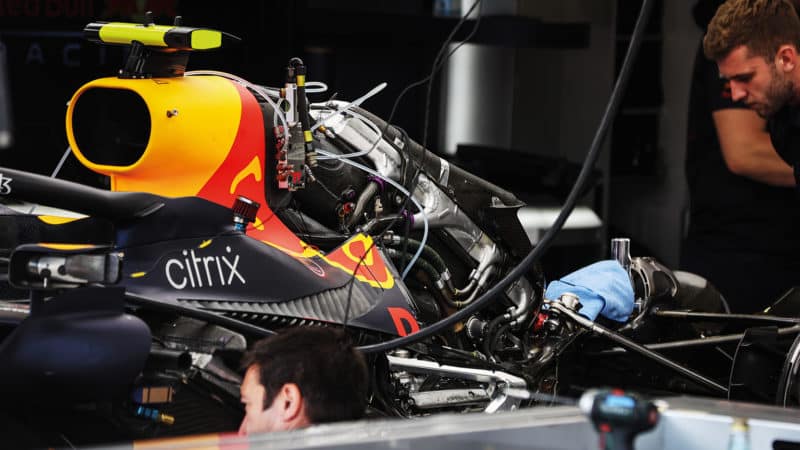
Red Bull is already pressing on with its own engine programme
Whether those discussions encompassed the future roles of Horner and Helmut Marko, or indeed technical chief Adrian Newey, is unknown by Motor Sport at this time. But there were already rumours that Porsche wanted to draft-in current McLaren (and ex-Porsche) team principal Andreas Seidl to run the team. But once Horner and Marko had held discussions with the Yoovidhyas, the group shareholder consensus was that the team was not for sale. Prior to the Italian Grand Prix weekend, Porsche issued a statement: “In the course of the last few months, Porsche AG and Red Bull GmbH have held talks on the possibility of Porsche’s entry into Formula 1. The two companies have now jointly come to the conclusion that these talks will no longer be continued.
“The premise was always that a partnership would be based on an equal footing, which would include not only an engine partnership but also the team. This could not be achieved.”
With that came the first suggestion that the 2026 Porsche F1 programme may actually be dead in the water. With no team and no power unit (and lacking the facilities and staff to create one in time), Porsche’s future participation in F1 is suddenly looking unlikely.
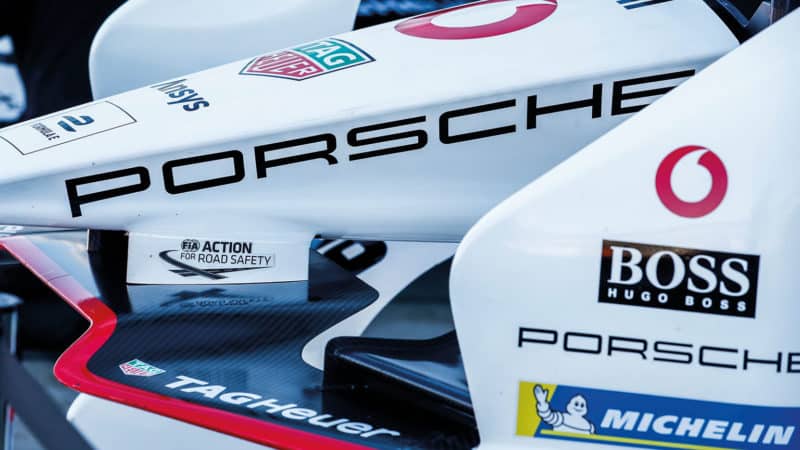
Porsche’s Formula E programme is committed until the end of the 2023/24 season
Red Bull’s position is that its Powertrains programme has left the station, that Porsche is still welcome to join should it change its mind but that regardless of badging, the PU project is ongoing at full speed and with full commitment. It already numbers around 300 employees, several of them very high-profile recruitments from Mercedes’ HPP engine facility in Brixworth, UK.
Concurrent with all this are insistent rumours that Honda – Red Bull’s PU partner of the last few years – may not, after all, be quitting F1. Although the Japanese manufacturer announced its withdrawal from F1, effective from the end of 2021, the regulation development freeze has allowed it to continue to supply and prepare its power units for the team (and its junior offshoot AlphaTauri) and will do for the remainder of this formula, which runs to the end of 2025. There is even a recently re-introduced Honda Racing logo on the back of the Red Bull’s engine cover. The racing part of Honda very much wants to be involved in the new formula from 2026, but the board is reportedly split about this.
Honda was understandably deeply uneasy about any of its technical IP being leaked to another automotive company under the guise of a Porsche-badged Powertrains project. Because even though F1’s 2026 PU is fundamentally different to the current one – with no ERS-h, massively increased electrical contribution, e-fuels and cost-capped – there is sure to be plenty of overlapping technology between the two. It can be imagined how that unease could be used to convince any faltering Honda board members that it really would be best to continue.
But even if it decided to do so, there is a potential clash between the Powertrains project in Milton Keynes, which Red Bull has fully committed to, and Honda’s likely wish to have full control of anything with its name on it. It would almost certainly wish any such future Honda PU to be developed in Sakura, as always. Resolving that mismatch would not be the work of a moment. But the possibility of the internal combustion engine part being done in Milton Keynes and the electrical development in Sakura has been mooted.
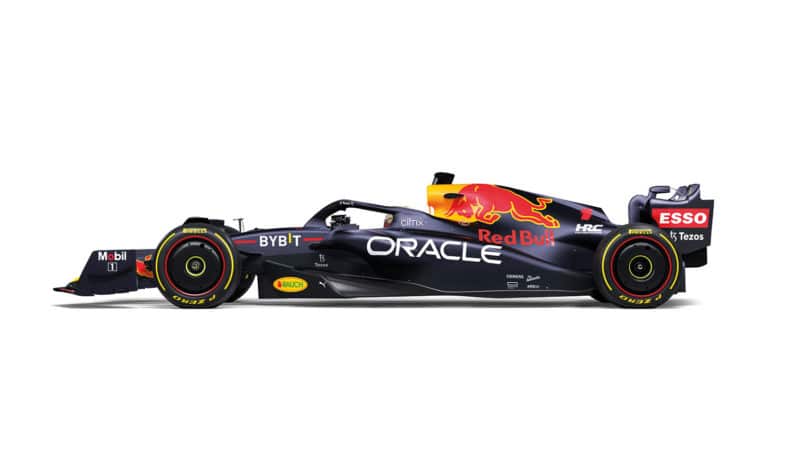
The runaway 2022 RB18
Any 2026 F1 power unit supplier which wishes to have full voting rights is required to sign up in October this year, so as to be under the power unit cost cap control. The current undetermined situation means that neither Porsche nor Honda is in a position to commit to a programme in that timeframe. But this is not the major obstacle it initially appeared to be. Liberty is expecting both companies to sign in October – and if either or both do not subsequently enter, they can simply withdraw.
Given that the 2026 rules were conceived very much around the input of the VW Group (which confirmed in April that both its Porsche and Audi offshoots have the green light for F1), Liberty is extremely keen to have them on board. It would doubtless love Honda to continue also. But would it be feasible to have all three manufacturers?
Audi has already officially announced its intention to enter F1 as a power unit supplier from 2026 (though not yet its intention to purchase a 75% stake in Sauber). It plans do so with its own engine, which ironically has been developed from a Porsche R&D project which was shelved in 2016. The abandonment of that programme in fact led to dispersal of much of Porsche’s competition engine expertise and facilities. Much of this went the way of Audi, which now has the staff engineering expertise and is rapidly building up the required facilities. Porsche has neither.
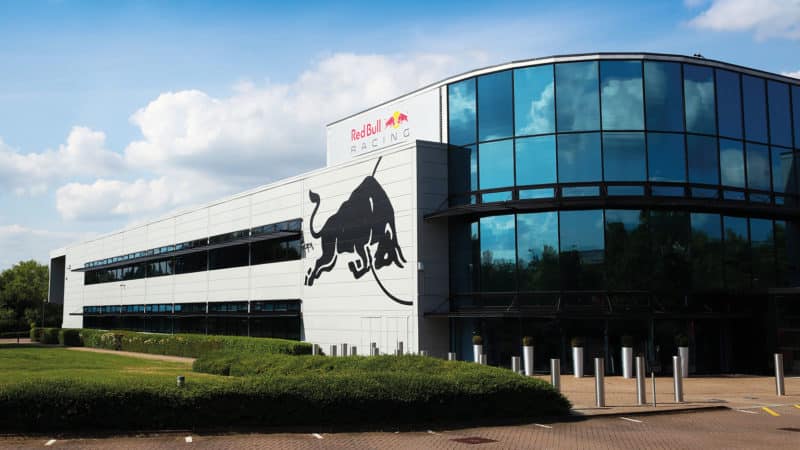
Red Bull’s Milton Keynes base
The fact that the initially planned Audi and Porsche F1 programmes were to be technically separate hints at the intense competition between the two VW-owned brands. But could the Audi (ex-Porsche!) unit not simply be badged-engineered for Porsche, which could buy another team (Williams, for example)? As far as the F1 regulations go, that would still be permitted, so long as the spending limits of a single PU design are respected. But politically, within the VW Group, the chances of that happening are said, by one F1 high-up, to be, “Absolutely zero. They hate each other.”
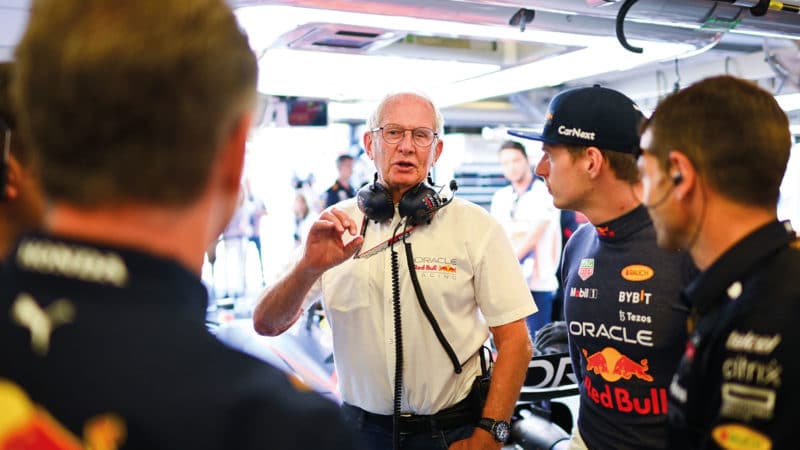
Red Bull adviser Dr Helmut Marko
This is all happening at a time of considerable flux within the VW Group. Porsche is planning to launch on the stock exchange later this year and the Red Bull asset would have added significant value to the portfolio. Red Bull’s refusal to sell will have come as a considerable blow to Porsche. Meanwhile the VW Group CEO Herbert Diess is about to be replaced by Oliver Blume, previously (and still) the chief of… Porsche! Some believe there may even be a danger of a Porsche-influenced scuppering of the Audi deal, such is the political sensitivity within the group.
When Liberty conceived of F1 as a team franchise operation with a freeze on the number of teams (which combined with a cost cap would make them all profitable) it should in theory have made increased automotive participation a given. With a limit on the cost, the (proven) marketing and (disputed) technical value and the team a potential profit centre, what was there not to like? As Diess said earlier this year, “It’s difficult to argue against participation because it can actually make money as well as enhance the value of the brands against our competitors.” And yet… Here we are with question marks around three of the major automotive players amid boardroom politics. It neatly illustrates the hazards of relying upon entities which do not exist to go racing.
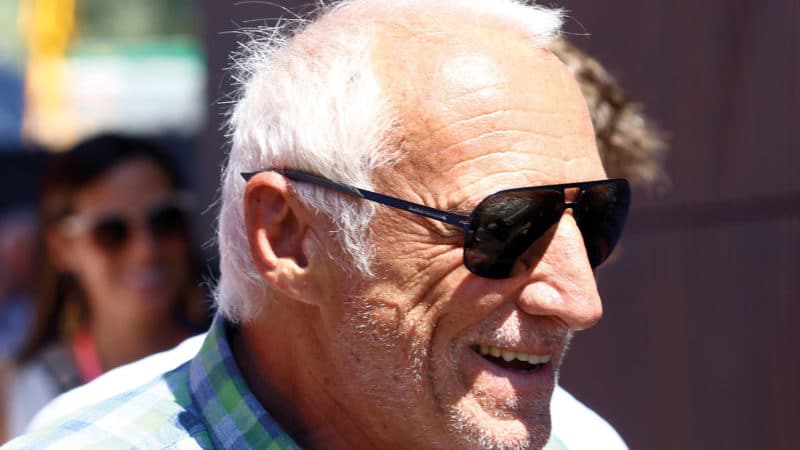
Dietrich Mateschitz owns 49% of Red Bull Racing
They will come and go, or say they are coming then not do so, regardless of how attractive participation is made for them. They add considerable value to the sport when they do come, of course. Hence why Liberty is so keen to have them. But the value of independent race teams existing for no other reason than going racing in F1 is easy to overlook when columns of numbers are being added up. Much like any lucrative city, Formula 1 is in a constant state of development and it seems to have transitioned to a place where the franchise holders are specialised F1 teams which will be bought and sold as automotive whims come and go. Red Bull is one, Sauber another, Alpine yet another. Even Mercedes is two-thirds independent. That one-third Daimler stakeholding could easily be bought out if it wished one day to leave. Because in theory each franchise-holder should now be profitable, they should be able to exist with or without an automotive owner.
So naturally there’s been a resistance to allowing in any new team. With the prospect of F1’s earnings spread between 11 teams rather than 10, the existing stakeholders have resisted Michael Andretti’s attempts at entering his team. A few months ago, he seemed to have found a way around that with a plan to purchase a majority stake in Sauber. That was scuppered when current owner Finn Rausing re-valued the team upwards and insisted on retaining a level of control. Andretti said at the time, “It came down to control issues in the final hours. That’s what killed the deal. Unfortunately at the 11th hour, control issues changed, and it was a deal that we had to step away from because we couldn’t accept it. I always said that we’re only going to do it if it’s right for us, and in the end it wasn’t right for us.”
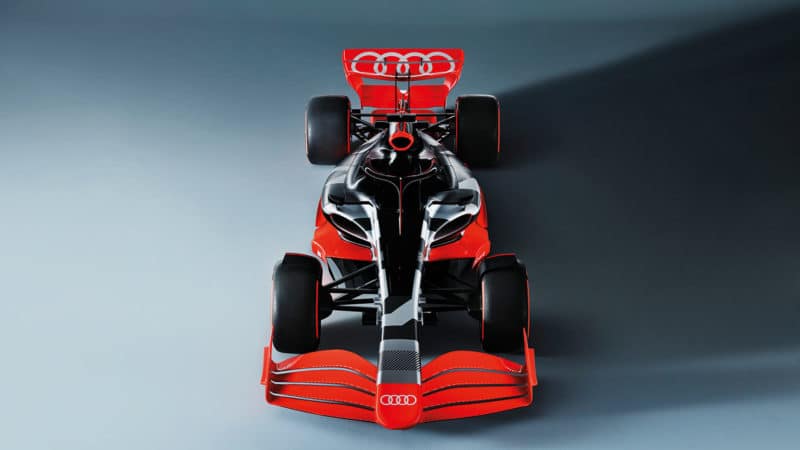
Audi’s mocked-up car for 2026
It may just have been coincidence that Audi was at the time looking at a route into F1… But it’s not impossible that Andretti, and not Audi, could yet end up with Sauber. Everything is still up in the air. Meanwhile Andretti is planning around the assumption that it will somehow find a way in. Formula 1 teams are highly-specialised organisations with a very specific mix of skill sets and it’s easy for the management of huge automotive conglomerates to under-estimate that and assume that bringing its own people and methods in will make it more successful. The sport is littered with case studies proving that assumption wrong. The trick is in combining specialist independent-team thinking and freedom with automotive muscle. It doesn’t sound like that’s the way Porsche was planning on doing things. Honda, on the other hand, has been delighted to let Red Bull be Red Bull, just as Mercedes has been guided – by Toto Wolff – into a light touch.
As independent and automotive F1 mix under the new American sports-style structure set up by Liberty, there is some chafing around the edges as their contrasting traits find their own place.
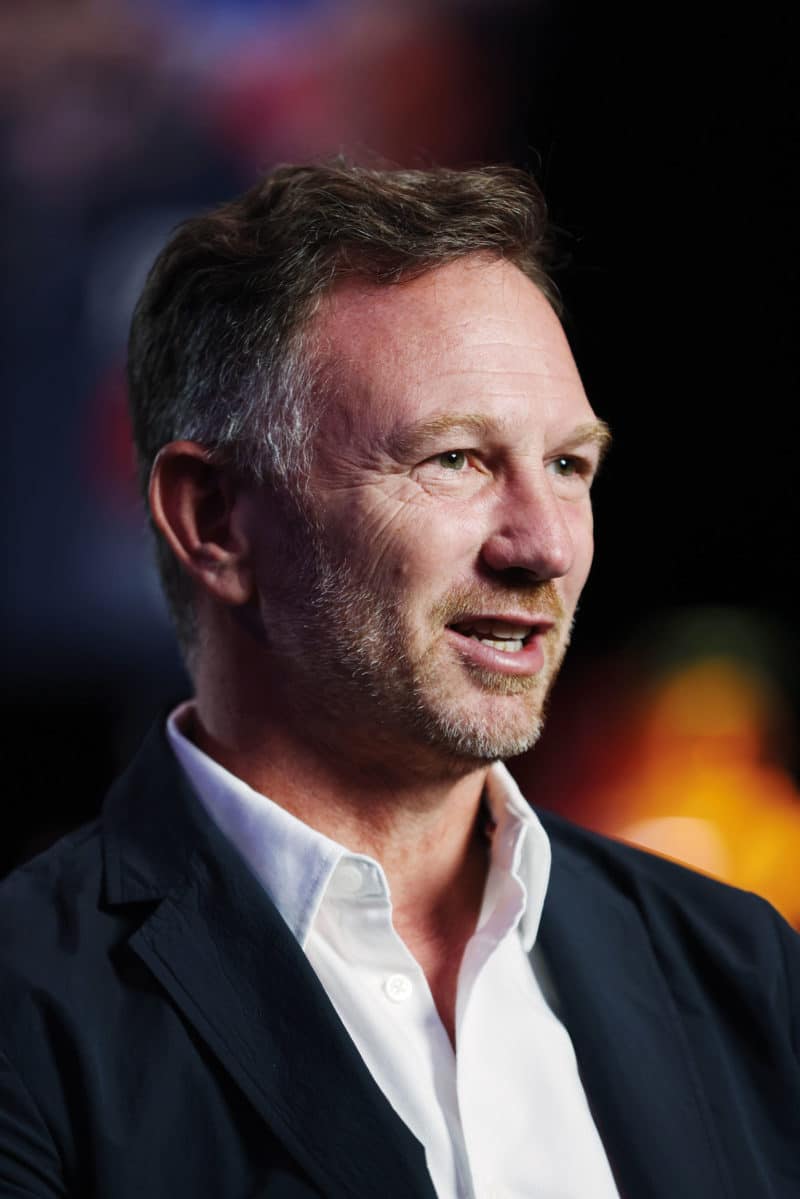
Christian Horner had to act to settle staff after documents registered by Porsche suggested it was buying half the team, and possibly making sweeping staff changes
The timings of the German giants
Both Porsche and Audi’s F1 entries have been long in the making. Here’s why…
Nov 2019
F1 confirms that a working group has been set up to look at powertrain rules options for 2026. The VW Group is involved with it
Apr 2020
Covid does the opposite of putting the brakes on the meetings, with talks instead intensifying as the sport looks to secure future deals
Oct 2020
Honda announces it will quit Formula 1 at the end of the 2021 season, leaving just three power unit manufacturers on the grid
Aug 2021
Audi pulls back from Le Mans Hypercar plans, and instead enters into talks to buy McLaren, which sparks talk of a future F1 entry
Jan 2022
The VW Group confirms that it is “watching Formula 1 with interest” as the sport pushes to find an extra OEM to replace Honda
Apr 2022
VW Group confirms that both Audi and Porsche are free to pursue Formula 1 entries under the new powertrain rules from 2026
May 2022
Porsche commits to Formula E until the end of 2023/24, as part of a big review of its racing. It enters talks with Red Bull in July
Aug 2022
The FIA WMSC rubber-stamps the 2026 engine rules, with the turbo V6 to remain, with additional hybrid power and new fuel
Aug 2022
Audi announces it will join F1 from 2026, and is in talks to buy out Sauber. A car mockup is revealed at the Belgian Grand Prix
Sep 2022
Porsche’s talks to buy Red Bull end after failing to strike a deal for both the engine business and a 50% stake in the race team

